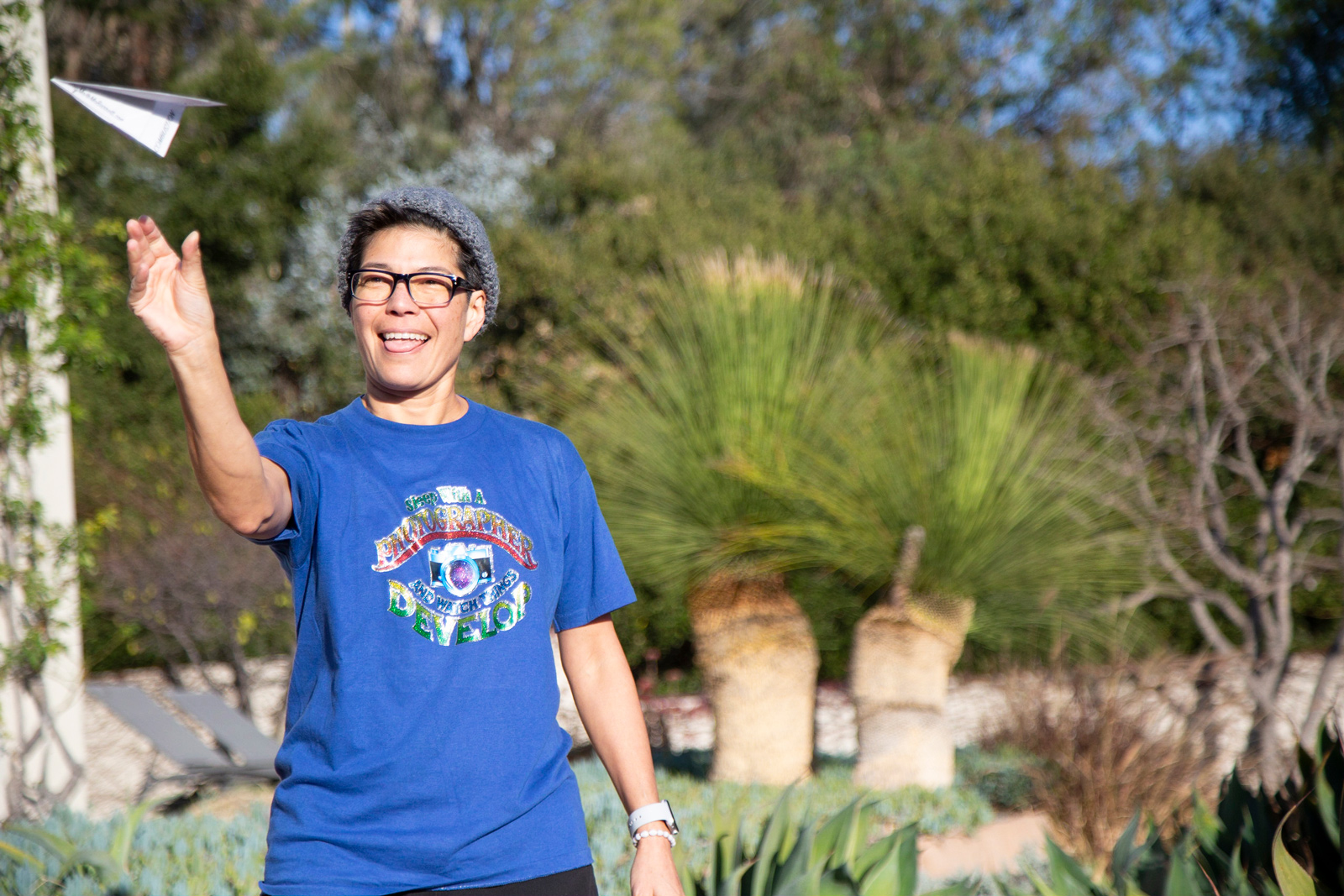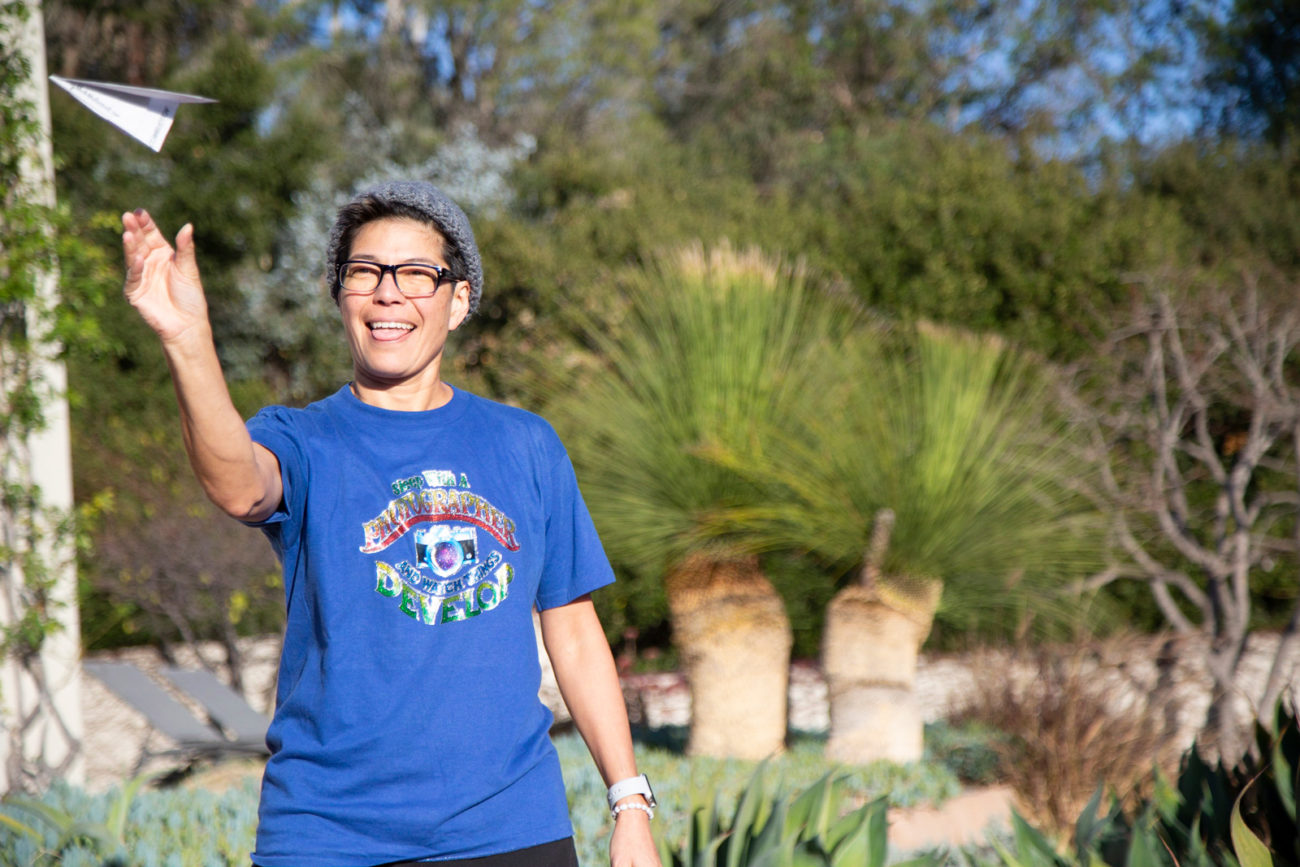The Lessons Learned From Stalling
When we grip too hard, we stall our life.

The summer after your freshman year at the Air Force Academy, you choose between jumping out of perfectly good airplanes or learning to fly airplanes.
Because I am of sound mind, I choose the stay-in-the-plane option.
Today we’ll be doing a "confidence maneuver" of stalling the aircraft which means starving the plane of airspeed by disrupting the air flow under the wing that normally keeps the plane aloft.
The reason we do this asinine maneuver is to teach me to recognize and prevent a stall from happening -- or to recover from one if I don't recognize and prevent it from happening.
Out in a motorized glider, the guy next to me is an Air Force instructor pilot (read: full-on grown up) stuck flying with a kid who thinks she's all that just because she made it through her first year at the Air Force Academy.
He points the nose to the sky, pulls back on the throttle -- and we wait.
Soon the aircraft loses upward momentum (never what you want in a plane).
The stick that controls the surfaces on the aircraft becomes ineffective.
The plane starts shaking, meaning we're at that wonderful moment between flying and falling.
My instructor told me the plane would go from nose high to nose low, so I am fully expecting the plane to go from nose high to nose low.
And today, the plane goes from nose high to ... right wing low.
I look to my left and all I see is sky.
I look to my right and all I see is ground. Fast-approaching ground.
My instructor executes the stall recovery, the first step of which is pushing the nose of the aircraft straight down, so now all I see is earth.
He is unconcerned that we're nose diving toward death. He has one hand on the throttle and the other on the stick, going through the motions of the stall recovery like it’s the dullest activity on earth.
In what feels like an hour of plummeting toward terra firma, the plane is flying straight and level and my heart rate slows down toward the triple digits.
The cockpit is quiet, aside from my panting.
My instructor breaks the solitude by asking if I’m ok.
What a stupid question! We just survived an almost-certain death experience together!
But because I think I’m all that, I play it cool with a snotty, “Yeah.”
"You sure?"
That brings an even snottier, “YEAH."
I seem to have forgotten that I was the lowest ranking cadet at a military institution talking with an officer who’s been through a commissioning program, pilot training and years of military service that have warranted a “sir” prefix or suffix to every phrase that comes out of my mouth.
My instructor seems to let that breach slide and also seems to buy that I’m actually ok (because I’m not).
My play-it-cool victory is short-lasting.
As it turns out, at some point during the stall or stall recovery, for whatever reason, I grabbed my instructor’s leg.
And unaware that I had put my hand there, I am equally unaware that it is still there.
All the “sirs” that I left out before came gushing out in between “Oh my Gods” and “I’m sorrys.”
I quickly retract my hand to my side of the cockpit.
If I wanted to become a pilot — heck, if I wanted to get through this one portion of my first summer here at the Air Force Academy — I had to let go of my instructor's leg and prove I could execute recoveries on my own.
For the sake of complete reporting, I’ll say that I did make it through the program (and the Academy).
For the sake of honest reporting, I’ll say that during follow on stalls and stall recovery demonstrations, I did *want* to grab someone’s leg, but I learned to let it be my own.
And eventually, my hands were on the controls because as part of the program, I had to be the one putting the plane into a stall and executing the recovery. And that took both of my hands.
Isn't that the case for so many of the things we do? We lean on (or in my case, grope) mentors as we learn new skills in ever-changing environments.
Each experience teaches us valuable insights that can be applied to the next time, providing skills that can be applied to the next time (and so on and so on).
Every single one of us is going through new experiences in the midst of constantly-changing environments.
End results may be similar, but you'll learn something that you can layer onto future decisions.
It's ok to lean on others at first, but at some point, we need to get our hands on the controls and fly our own plane, because ... when we grip too hard, we stall our life.

